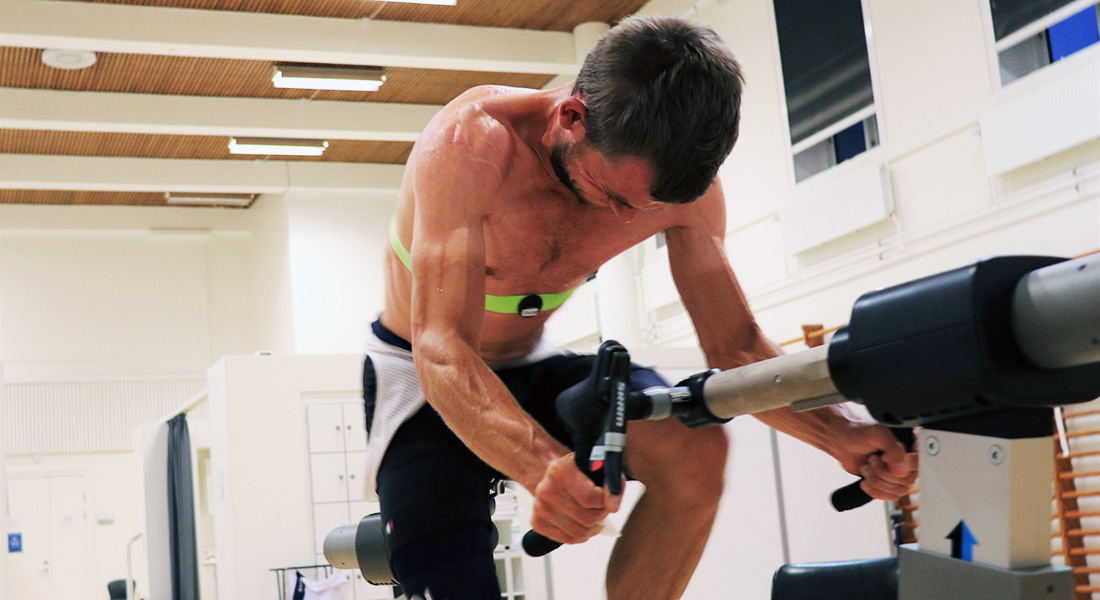University of Copenhagen home to the world’s leading research environment in sports science
The Department of Nutrition, Exercise and Sports and the Institute of Sports Medicine, Bispebjerg Hospital, rank as the world’s leading research environment within sports science in the ‘Global Ranking of Sport Science Schools and Departments’, which recently has been published by the internationally recognised Shanghai Ranking.

Since 2016, the Shanghai Ranking has published an annual list of the world’s leading research environments in sports science. In the 2018 rankings, University of Copenhagen – represented by the Department of Nutrition, Exercise and Sports at the Faculty of Science and the Institute of Sports Medicine, Bispebjerg Hospital at the Faculty of Health and Medical Sciences – ranks number one among 372 universities from around the world.
The rankings are based on five different criteria falling within quality of research, amount of research, and international research collaboration: 1) the total number of published scientific articles; 2) the number of articles in the journals with an impact factor in the top 25%; 3) the number of times the published articles are cited in other scientific articles; 4) the number of citations per published scientific articles; and 5) the percentage of scientific articles which are the result of international research collaboration.
Professor, MD, DMSc Arne Astrup, Head of the Department of Nutrition, Exercise and Sports, is thrilled with the rank and credits the employees:
“We’re incredibly proud of our ranking, and all credit goes to the employees at the departments. It’s their ambitious work which has led to us being able to call ourselves number one in the field of sports research. That we have gone from being number 18 last year to number one this year is testament to a unique and solid academic environment in constant development,” says Professor Arne Astrup.
Professor, MD, DMSc, Michael Kjær, Head of the Institute of Sports Medicine, adds: “This acknowledgement is extremely encouraging – not only because of our long-standing tradition of combining research in sports physiology with medicine, started by August Krogh and Johannes Lindhard, but also because it’s a pat on the back to the integrative and translational research conducted in basic and clinical research environments at university departments and university hospitals. We’re proud to pass on this tradition.”
Professor, MD, DMSc, Erik A. Richter, Deputy Head of research at the Department of Nutrition, Exercise and Sports agrees. He emphasises the departments’ extensive scientific approach and their strong academic standards:
“It’s truly impressive that the University of Copenhagen now houses world-leading research units in sports science – especially in the light of how extensive the research conducted at the Department of Nutrition, Exercise and Sports really is. We have units that deal with child nutrition, the obesity epidemic, sports in society, performance nutrition, and molecular physiology – so the department covers far more than what sports science traditionally covers. But that just makes the researchers’ efforts and the ranking even more impressive,” emphasises Professor Erik A. Richter.
A lot of high-quality research
If you dive into the underlying statistics, the Shanghai Rankings show that from 2013 to 2017, the Department of Nutrition, Exercise and Sports and the Institute of Sports Medicine were the units that published the most articles in scientific journals of all research units within sports science. They also published the most articles in the top 25% journals with highest impact factor, and the articles were the most frequently cited. Dean John Renner Hansen at the Faculty of Science at the University of Copenhagen considers the first place to be a mark of a successful university strategy:
“The Shanghai Ranking, combined with the annual CWTS Leiden Ranking, is one of the four rankings that the University of Copenhagen keep an eye on, as they are considered reliable and fair from an international perspective. The departments’ first place is an expression of the exceptionally strong academic standards, which are also found at the University’s other academic environments,” says Dean John Renner Hansen. He continues: “These academic standards are a great foundation for keeping and attracting the greatest academic talents, thereby realising the strategy of the University of Copenhagen.”
On this year’s list, there are several great rankings for other Danish research environments within sports science. The Department of Sports Science and Clinical Biomechanics at the University of Southern Denmark is ranked as number six and Section for Sport Science at the Department of Public Health at Aarhus University is ranked between 51–100.
Topics
Contact
Kristian Levring Madsen
Communication Manager
Department of Nutrition, Exercise and Sports, University of Copenhagen
Email: kma@nexs.ku.dk
Telephone: (+ 45) 4048 1684
